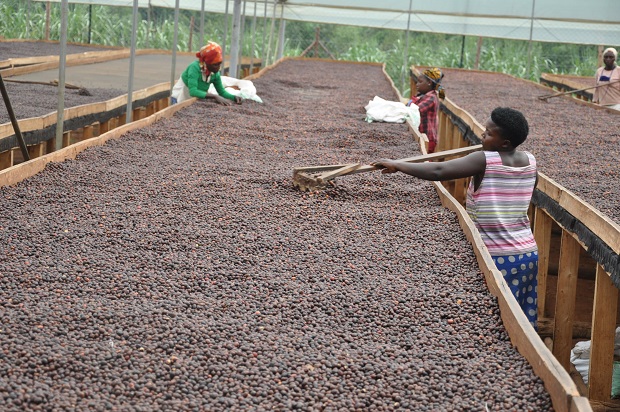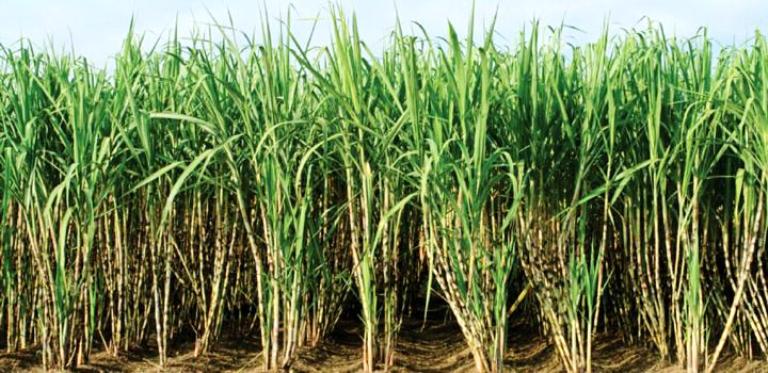Byamugisha inspecting his farm
Farming has been a traditional way of life for both income and household consumption for Martin Byamugisha and his family.
The farm is located in Rwempogo village, Kamushoko, Bubare Sub-County in Mbarara district.
It sits on 20 acres with productivity of 8kgs (kiboko) per coffee tree. Initially, the family largely depended on banana (matooke) growing which was supplemented with cattle keeping.
“Both enterprises were prone to adverse effects of a long drought
and over the past 20 years, banana shambas (plantations) in the region were ravaged by the Banana Bacterial Wilt (BBW) while herds of cattle were attached by tick borne diseases,” said Byamugisha.
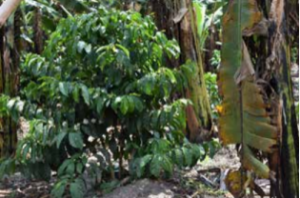
“This threatened our livelihood so we introduced coffee farming as an alternative source of income in 2013,” he added.
The Byamugisha family learnt the hard way that coffee plants require plenty of water to survive. Without adequate water for production, the crop produced was not impressive.
“The plants did not produce good quality cherries,” Byamugisha explained.
“Sometimes the cherries had one bean instead of two. Some of the cherries were even empty. The solution was to provide a relatively sustainable water source and develop an irrigation system to meet the coffee water requirements and improve productivity,” he revealed.
With advice from the Uganda Coffee Development Authority (UCDA) extension staff, he looked into various options to overcome this challenge.
Irrigation
In 2017, the family invested in excavation of a valley dam which is also used for fish farming and establishment of an irrigation network covering the existing coffee plantation.
The farm’s modern irrigation system has sprinklers that deliver water in a radius of 50m.
Byamugisha was deliberate in his search for the right system of irrigation for his farm.
Because of the location and terrain of his farm, he dismissed drip irrigation as an option.
In his opinion, the drip irrigation pipes are easily susceptible to damage. The sprinklers therefore presented a better option.
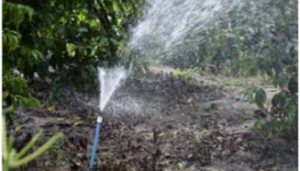
The water for irrigation is obtained from a 14ft deep earth dam measuring 100 x 50ft wide.
Access to water has led to progressively increased coffee production on Byamugisha’s farm and he highly recommends that coffee farmers ensure they have a good source of water instead of relying only on the rain.
The farm has progressively registered increase in production as a result of the irrigation.
Production more than doubled between 2017 and 2019 after irrigation was introduced.
With coffee at different stages of growth, Byamugisha harvested 20 bags in 2015, 31 bags in 2016, 66 bags in 2017, 80 bags in 2018 and 180 bags in 2019.
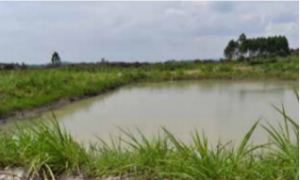
The increase in production resulted in the job opportunities for members of the community with the farm hiring up to 40 workers per day during the coffee harvest season.
The workers were therefore able to get income to cater for their children’s school requirements as well as other needs.
Byamugisha intercrops his coffee with matooke. The benefits from this are four-fold. The banana plants provide shade for the coffee especially when it is still young.
The banana plant also provides material for mulching, food for the farm’s workers and additional income for the family.
The farm would do even better, Byamugisha adds, if they were using fertilizer.
He called on UCDA to support the farm with fertilizers and enable them have access to solar pumps for the irrigation system at a subsidized cost.
Alternatively, he said, the Authority could support farmers to negotiate for a farmer friendly tariff with Umeme.
Currently the farm uses about 160 litres of diesel per week to run the pump and sprinklers.
Byamugisha also commented that UCDA should support farmers to improve the quality of the coffee.
“UCDA should motivate farmers to prioritize producing good quality coffee. The coffee should be processed and graded and the cost of a kilogram should be determined according to the quality,” Byamugisha said.
“We also need support to acquire an appropriate coffee wet processing plant which will reduce labour and storage costs, reduce on the area where to spread the beans and result in high value coffee,” he said.



